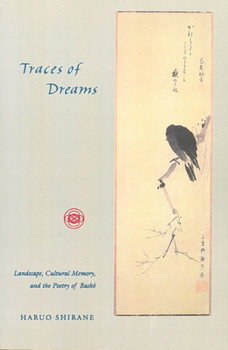Traces of Dreams
Select Format
Select Condition 
Book Overview
Basho (1644-94) is perhaps the best known Japanese poet in both Japan and the West, and yet there has been remarkably little serious scholarship in English on his achievement. This book is intended to address that virtual void by establishing the ground for critical discussion and reading of a central figure in Japanese culture, placing the works of Basho and his disciples in the context of broader social change. Intended for both the general...
Format:Paperback
Language:English
ISBN:0804730997
ISBN13:9780804730990
Release Date:January 1998
Publisher:Stanford University Press
Length:400 Pages
Weight:1.35 lbs.
Dimensions:0.8" x 6.0" x 9.0"
Customer Reviews
1 rating
Basho in His Time
Published by Thriftbooks.com User , 24 years ago
Matsuo Basho (1644-1694) is certainly the best-known haiku poet of all time, even though he never heard the word "haiku". What he did do, in his own time, was (a) write and teach the writing of "haikai no renga", the popular style of linked, collaborative poetry of his time, (b) collect the largest number of followers (or "disciples") of any poet of his day, (c) write a number of short prose pieces with short verses he called hokku (haibun), (d) write a number of independent hokku (which we now call "haiku"), and (e) write several travel diaries, the last of which, "Narrow Road of the Interior" goes by a number of titles in English and is one of the great masterpieces of world literature.You can find out about all this from other books. However, in Professor Shirane's book, you will find out more: Basho was not the only person doing these things during his lifetime. And although nobody is likely to say that Basho was not the most important poet of his day, he was definitely influenced in all his work by the trends of the time. When funny verses were the vogue, early in his career, he wrote funny verses. When Chinese poetry became a major influence on the poetry scene, his writings reflected his own rich knowledge of that Chinese heritage. When other poets started advocating a "lighter" style, more directly concerned with the things of daily life, Basho took up "lightness" as an important element of his art.Basho's uniqueness does not lie in his unique type of poetry, but in his great ability to ride the wave of fashion in a common type of poetry and make something rich and lasting from it. By placing Basho and his work--with many fine translations--in the context of his own day and his own culture, Prof. Shirane gives us a deeper, richer Basho than we knew before. And, he helps us grasp some basics of Japanese culture, and of haiku, that we probably missed in other books on the subject.





